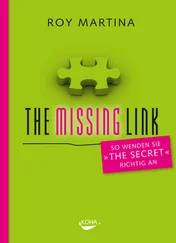"Really, Remo. You find a way to cheapen everything," he said.
"Come on," Remo said. "We've got places to go."
When Mustafa Kaffir had turned out the light in his room at the Libyan mission, he had looked out the window into the street, as he always did, to make sure the New York City police guard was there, as it always was.
A half-hour later there was a faint tapping on his door, and then the door swung open, and in the brief light from the hallway, he saw the thin girlish figure of his personal assistant, who came across the carpeted floor noiselessly, peeled off his long robe, and slid into bed beside Kaffir.
They were asleep in each other's arms in minutes, and they slept soundly, until an hour later when Kaffir was awakened by one hand touching his shoulder, and prevented from crying out by another hand clapped over his mouth.
In the dim moonlight through the window, he recognized the hard face of the young American who had been to the mission to talk to him about
108
Bobby Jack Bülings. Standing behind the American at the door was another figure. Kaffir could not see clearly in the dimness but it was a small person in a long robe, and then some reflected auto lights bounced into the room, and he saw the man by the door was an aged Oriental.
The American was whispering in his ear now.
"I think we should just let your little friend sleep," he told Kaffir. "But if that's what you want, this time you cooperate. You understand?"
Kaffir was slow in responding and he felt a bite of pain in his shoulder, a stab that felt inflicted by a knife, but as quickly as it came, it passed, and he nodded his head vigorously.
"The girl, the big blonde, when I asked you about her, you said you didn't know her," Remo said.
Kaffir shook his head. "You asked if she had come to question me," he said. "She hadn't."
"Don't split hairs," Remo said. "Where is she now?
"She has gone to Boston.'
"Why?"
Kaffir hesitated. He felt the bite of pain again in his shoulder. Quickly, he said, "You know her mission?"
"Tell me," Remo said.
"She looks for that missing person."
"For Bobby Jack?" Remo said.
Kaffir nodded in the dark. Next to him, his young lover stirred, and he whispered at Remo, "She said she had a lead in Boston."
"What lead?" asked Remo.
"She didn't say. She called earlier and said she
109
r
would be going to Boston. She asked for two men to protect her on her way to the airport."
"Yeah," Remo said. "We met them."
"Oh?" said Kaffir.
"Yeah. Don't hold supper for them. She didn't say where she was going in Boston or who she was going to see?"
"No," Kaffir said. "She didn't. I swear it."
"Is she working for you?" Remo asked.
"Yes. That is, for my country."
"Why do you want to find Bobby Jack so much?" asked Remo.
"It was our hope that if we find him and return him safe to his brother-in-law, he might show his appreciation in tangible ways," Kaffir said.
RemoTiodded. "If you're lying to me . . ." he said. "Well, I just hope you're not lying to me."
"I'm not," Kaffir said. "I'm not." He heard the reassuring deep breathing of his lover next to him. It gave him a sense of confidence and power. "I am telling the truth," he said.
"If you're not," said Remo, "I'll be back."
And then, as quickly and quietly as he had appeared ,the American was gone, and so was the old Oriental who had stood by the door. Involuntarily, Kaffir's hand reached for the telephone. He should tell someone. Who? The security guard. His superiors. Someone. He let his hand settle down slowly on the telephone.
Why bother, he thought. So far, the American, whoever he was, had learned very little. If the American government had known more, Washington would have been burning up the Libyan mission with visitors and protests. This American and
110
his Oriental companion might be nothing more than freelancers, and they might-very well meet fatal accidents in the normal course of their freelance duties. He took his hand from the telephone. There was nothing to be gained by saying anything to anyone. Not just now. He began to roll over in the bed, and then paused. Perhaps he should notify Jessica Lester. Warn her? He shook his head to himself in the dark. There was no need for that. She could take care of herself.
He wrapped his brawny arms around his lover who purred warmly, and Mustafa Kaffir closed his eyes and went to sleep.
HI
CHAPTER TEN
Aboard the DC-9 to Boston, Remo explained his theory of the case to Chiun, who was following his usual procedure of staring at the wing to make sure it stayed on.
"Jessica kidnapped Bobby Jack," Remo said. "And she's got him stashed somewhere up in Boston. The Libyan, he was telling the truth. Probably, she's trying to sell them Bobby Jack." Remo was annoyed at Chiun's lack of response. "Anyway, that's the way I've got it figured."
Chiun slowly turned from the window. Below them, the sparse bright lights of the metropolitan area dimmed in the distance.
"Did I ever tell you," Chiun asked, "how the great master Tang-Si made soup with a nail?"
"No," said Remo, "and I don't think I want to hear about it."
"It was many of your centuries ago," Chiun said. "Tang-Si was one of the first great masters, even though he was not as great as the great Wang, but he was quite good. On an overall scale, I would place him—"
114
"C'mon, Little Father," said Remo. "If you're going to do it anyway, can't you get on with it?"
"This was one of the periods of time when the village of Sinanju faced starvation. Times were hard and the people were poor. Tang-Si was gone from the village for many months, and the poor people were on the verge of starvation. Even worse, they were ready to send the children home to the sea."
Remo groaned softly. "I know, Chiun, I know. Very poor . . . bad times . . . nothing to feed kids . . . villagers throw them in the North Korea Sea . . . call it sending the children home to the sea ... I know all about it."
"You are very graceless," Chiun said. "But when the master Tang-Si came back from his journey, the people were desperate and they said, 'You must feed us, Master, even if it takes a miracle.' And the master, who had looked around the village and seen that the fishing nets were torn and that the sparse land had no seed in it, was angry, but he did not show it. Instead, he said, 'If you would see a miracle, I will show you how to make soup with a nail.'
"And he heated a large metal pot of water, and into it he threw an iron nail. When the water boiled, the villagers looked into the pot, but they saw no soup; they saw only water with a nail in the bottom of the pot.
"Then the great Tang-Si reached into his bag and pulled out caiTOts which he threw into the pot, and a special green radish which we grew, and chestnuts, and pieces of a rabbit he had caught, and soon a delicious soup was bubbling over the fire. And that, the great master told them, is how you make soup with a nail. A lot of water, a nail, a few
115
carrots, a special green radish, chestnuts and rabbit."
Chiun stopped talking and turned back to the window.
Remo tapped him on the shoulder.
"I don't get it," he said. "That's not making soup with a nail."
Chiun shook his head as he turned back. "What the master was saying to the villagers was that it was one thing to wish for miracles, but it would have been better in his absence, if they had fixed their nets and fished, and if they had sown seed in their fields. This is what the great master Tang-Si was telling our people."
He turned back to the window.
Remo thought about the story almost to Boston, then tapped Chiun on the shoulder again. The old man, satisfied that the wing seemed committed to its present position, turned to him again.
Читать дальше


